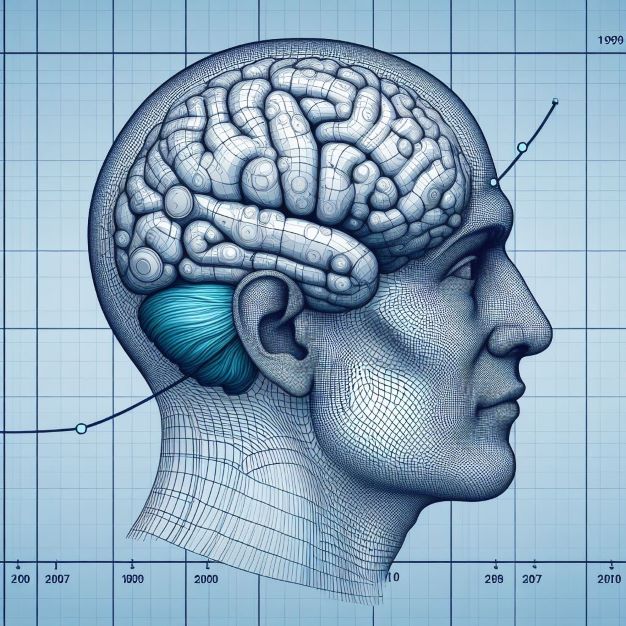Unveiling Actual Users’ Remarkable Brain Age Improvement using Thinkie Technology

Unveiling Actual Users’ Remarkable Brain Age Improvement using Thinkie Technology
The latest research by NeU Corporation, sister corporation to Thinkie, explores fascinating new data regarding the Thinkie System and its impact on brain age improvement among real users. The concept of brain age is evaluated through cognitive tests designed by NeU to measure cognitive speed, working memory, and executive function. This particular study by NeU concentrated on cognitive speed to assess the impact of consistent use of the Thinkie brain training system in lowering brain age.
Thinkie users in this experiment experienced notable decreases in brain age with regular engagement. We encourage you to examine these results closely and consider their implications for enhancing long-term brain health and cognitive performance through the Thinkie system.
1: Brain Training Duration and Brain Age Reduction
NeU analyzed data of 178 individuals aged 40 to 90+ who have engaged with Thinkie brain games for three months or longer and constantly checked their brain age. The change in brain age from each patients’ initial baseline was calculated, with the average change for each month of continuous play depicted in the graph below.
Participants noted reductions in brain age relatively quickly. On average, three months of consistent Thinkie training resulted in a reduction of brain age by 3.7 years. With ongoing practice, these cognitive improvements further accumulate, potentially leading to significant reduction in brain age – in some cases as much as 21 years – after three years of use.
Specifically, the average brain age reduction observed is:
· 3.7 years reduction after 3 months’ use
· 6.8 years reduction after 6 months’ use
· 10.6 years reduction after 1 year’s use
· 12.9 years reduction after 18 months’ use
· 14 years reduction after 2 years’ use
· 21 years reduction after 3 years’ use

2: Brain Age Reduction by Age Group
The graph below illustrates the variation in brain age reduction across different age groups.
Comparable enhancements in brain age were observed in older age groups. Participants in their 50s and 60s showed the most pronounced range of brain age reduction over various training durations. For those in their 70s and 80s, while the range of reduction narrowed, it nonetheless remained consistent.

3: Trends in Brain Age Improvement by Training Frequency
NeU also analyzed how the frequency of brain training activities impacts brain age over both the short and long term. Participants were divided into four groups based on training frequency: less than two days per week, two or three days per week, four or five days per week,and six or more days per week.
The findings suggest a correlation between increased training frequency and greater improvement in brain age over a span of 24 months or more. Those engaging once or twice a week saw an average reduction of 10.3 years in brain age after 24 months. Notably, participants exercising their brains almost daily (six or more days) observed the most pronounced improvement, with an average brain age reduction of 16.2 years over the same period.

Summary: Brain Exercises for Cognitive Enhancement
Continuous training led to brain age improvement across all age groups. Dr. Kawashima, the creator of brain age and the Thinkie Brain Training system, and CTO of NeU corporation, advises a minimum of two training sessions per week—preferably four or more—lasting more than 5-10 minutes each for optimal benefits. Nonetheless, even minimal engagement can yield a significant decrease in brain age.
